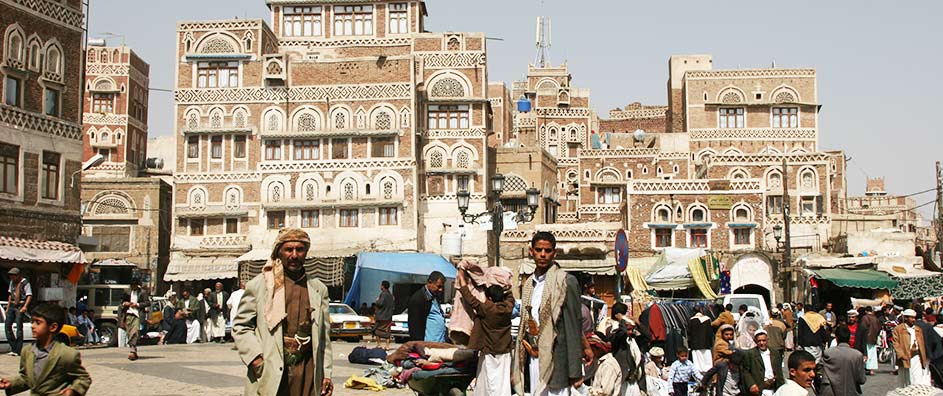In recent years, the plight of the Baha’is in Yemen has attracted international scrutiny and condemnation. As advocates for justice and humanitarian principles, tribespeople and activists have taken a stand against the egregious treatment of this minority group. What compels ordinary individuals—tribespeople, social activists, and international observers alike—to engage deeply in a cause that, while distant from their immediate concerns, resonates profoundly with universal values of justice and equity? In contemplating this question, one may face a challenging dilemma: balancing local traditions and community integrity while advocating for the rights of marginalized groups. This article delves into the Baha’i teachings that underscore the need for justice and examines how these teachings inspire activism and solidarity in Yemen.
At the crux of the Baha’i faith is the principle of the oneness of humanity. This directly conflicts with actions that marginalize or persecute individuals based on religious affiliation. In Yemen, the Baha’is have found themselves subjected to systemic discrimination, persecution, and, in some instances, violent repression. Such circumstances evoke the inherent question of moral responsibility: When injustice prevails, are we not all implicated? This galvanizing thought propels activists and tribespeople into action, aiming to protect those who are vulnerable, combat hatred and intolerance, and ultimately foster a more equitable society.
Critical to this mission is the understanding of the Baha’i teachings themselves. Baha’u’llah, the founder of the Baha’i faith, emphasized that true religion must promote unity—an ideal that transcends geographical, ethnic, and even sectarian distinctions. Consequently, the assaults on the rights of Baha’is in Yemen not only challenge the moral compass of the nation’s ethos but also confront its broader implications for social cohesion. Activists often draw upon these teachings to critique prevailing injustices and motivate others to join their cause, emphasizing that the denial of rights to one group affects the integrity of society as a whole.
The pervasive issue of intolerance manifests itself in various forms across different cultures, but in Yemen, it has coalesced into a particularly virulent strain. Baha’is have been denounced and wrongfully accused of crimes against the state, leading to arbitrary arrests and detentions. This persecution is not merely an attack on individuals; it is emblematic of a societal failure to uphold the principles of justice and compassion that are central tenets of both Baha’i and Yemeni cultural values. Many activists argue that this situation must be reformed from within—hence the importance of engaging indigenous leaders who understand the cultural landscape and can articulate needs in culturally sensitive ways.
The activist response to these injustices serves as a testament to the resilience of the human spirit in the face of oppression. Local tribespeople, leveraging their influence and communal networks, have orchestrated protests aimed at drawing attention to the plight of Baha’is. This solidarity, however, is not without its complexities. The challenge lies in navigating the intricate web of local traditions and societal expectations while advocating for equal rights. Activists often find themselves at a crossroads, compelled to reconcile their obligation to their cultural roots with their commitment to uphold universal human rights. Such a challenge poses the question: How does one effectively advocate for the rights of the marginalized without eroding the very cultural landscape that defines their identity?
Moreover, the protests are not simply local phenomena but resonate on an international level, inviting global observers to respond to the humanitarian crisis in Yemen. The Baha’i teachings encourage the principle of consultation, fostering dialogue as a means of arriving at consensus and understanding. Activists, inspired by these teachings, often engage in conversations that seek to bridge divides. This methodology, characterized by inclusivity and harmony, is crucial in rallying support from various sectors of society, uniting individuals who may have disparate viewpoints but share a common objective: the eradication of injustice.
Furthermore, the role of digital activism cannot be overstated. In a landscape where information can be disseminated with unparalleled speed, social media platforms have become instrumental in raising awareness and mobilizing support for the Baha’i cause. Engaging with a diverse audience via these platforms can amplify the voices of the oppressed in Yemen and invoke global empathy. However, with this capability comes the challenge of ensuring that the narratives shared are authentic, respectful, and sensitive to the cultural contexts from which they arise.
This intricate interplay between local activism, Baha’i teachings, and global awareness underscores the necessity for a unified front against persecution. It speaks to the broader need for human rights advocates and tribal leaders to foster a climate of understanding and compassion, which transcends individual interests for collective security and wellbeing. Moreover, it highlights the potential for enriching the cultural dialogue around issues of justice and equity, allowing for a multiplicity of voices to be heard and appreciated. Through collaboration and adherence to the principles of the Baha’i faith, a more profound social transformation is not only possible but also imperative.
In conclusion, the activism surrounding the treatment of Baha’is in Yemen encapsulates a rich tapestry of cultural engagement, ethical responsibility, and the unwavering quest for justice. The dilemma that activists face serves to illuminate a fundamental truth about our shared humanity: justice, when pursued earnestly, emerges as a powerful force that can bridge divides and create lasting change. Ultimately, it is the collective responsibility of contemporary society to heed this call, championing the rights of marginalized groups, and adhering to the tenets of love, compassion, and unity that should govern our interactions with one another. As the world bears witness to the struggles of the Baha’is, may it also come to recognize its own role in the quest for universal justice and peace.
